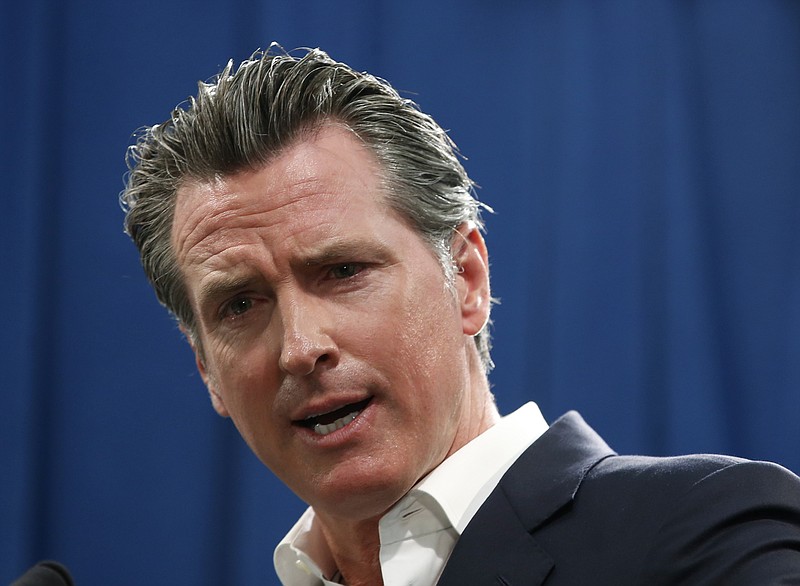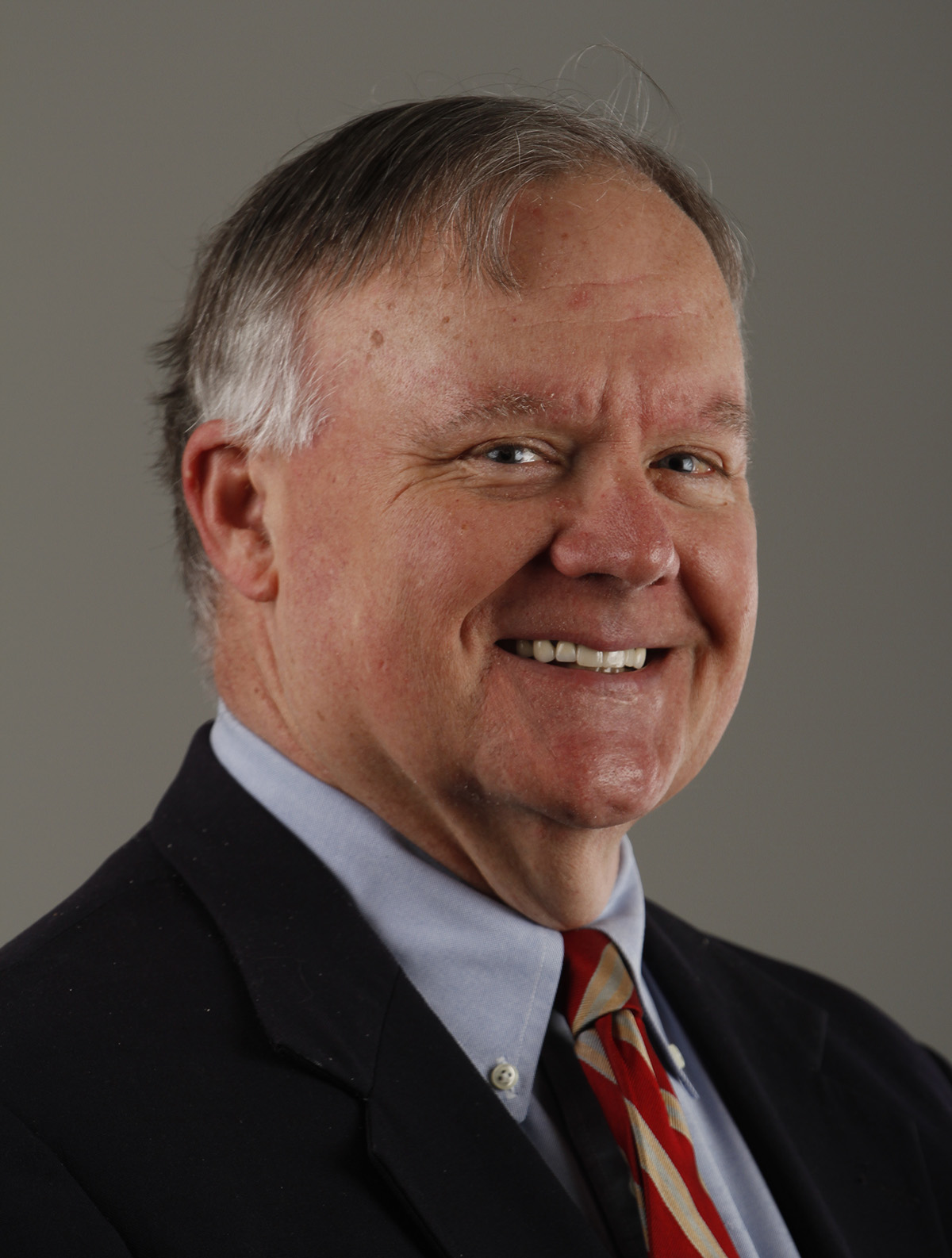It's over.
With California governor Gavin Newsom signing into law his state's Fair Pay to Play Act on Monday - a bill designed to allow a college athlete to earn money by selling the rights to his or her name, image or likeness to outside bidders - college athletics as we have come to know it for the past 100 or so years is over.
No, the Fair Pay to Play Act doesn't officially become law until January of 2023 and there's always a chance (a very, very slim chance) that a court will strike it down before that time.
But the overwhelming odds are that by the 2022-23 school year, four-year college athletes in the Golden State, and almost assuredly elsewhere, will earn money each time their likeness is used in a television or radio ad, on a billboard, in a magazine or on the side of a bus.
In signing the bill, Newsom noted: "Other college students with a talent, whether it be literature, music, or technological innovation, can monetize their skill and hard work. Student-athletes, however, are prohibited from being compensated while their respective colleges and universities make millions, often at great risk to athletes' health, academics and professional careers."
He has a point, though few folks with a talent in literature, music or technological innovation have those talents beamed to millions of viewers - and, thus, consumers - each time they take the field or court. It's certainly arguable that college athletics at its highest level rather grandly markets these athletes for free. Plus educating them, feeding them, providing free medical care and the like for the life of their scholarships, which can run as long as six years if they are granted a medical redshirt at some point after they've already burned a normal redshirt season.
Of course, all those folks pushing the Fair Pay to Play Act never talk much about that.
Certainly, there will be a multitude of arguments on both sides as to whether this is a good thing. Those of us who believe the lifetime value of a college education has been ridiculously undervalued in order to reward a handful of athletes a fistful of dollars will forever view this potential sea change with scorn bordering on disgust.
Those who view today's college athletes as little more than slaves - working long hours for little to no pay in glorified sweatshops known as gyms and stadiums on plantations referred to as Big State U - will hail this as an Emancipation Proclamation for those yearning to escape an outdated model that requires them to work for their "free" education.
If only all those young people who flip burgers, sell clothes and clean bathrooms to pay for their education could convince McDonald's, TJ Maxx and Motel 6 that they deserve an endorsement deal, too.
But to some degree, both sides are as wrong as they are right.
For instance, if you were Duke basketball star Zion Williamson this past year, there's no question you generated millions of dollars for ESPN and Nike - at least once the shoe giant's stock recovered from the sneaker blowout you had wearing one of its products against North Carolina - which means you were unquestionably underpaid.
Then again, what if Williams had signed with Wofford instead of Duke and was a 10-second highlight on ESPN two nights a week? How much money would he have made folks other than Wofford?
There's also this: The financial worth of Williamson's scholarship plus the perks he received as a Blue Devil were almost certainly north of $100,000.
Again, Williamson was worth it. But what if all of college athletics decided that athletes' scholarships are based on what they're paid by outside sources because of the attention afforded them playing for a Duke or Kentucky in basketball or an Alabama or Ohio State in football?
For instance, let's say Williamson had earned $5 million in outside income during his single winter at Duke, but Duke was on the hook for $110,000. Zion would keep $4.89 million.
Or let's say Alabama quarterback Tua Tagovailoa pockets an extra $800,000 in endorsements this season and Bama's cost for his tuition, room, board and perks comes to $65,000 as an out-of-state student. Well, he'll receive a check for $735,000.
After all, it is the University of Alabama that is giving him the platform to earn such money.
And just to make sure everyone knows who still wields the power, the Fair Pay to Play Act does not allow a student-athlete to market an athletic shoe different from the one his school wears. So if you play for a Nike school, no Adidas contracts allowed.
Is there a solution that would be fair for all, including the NCAA, which has vowed to fight this, and could do so by banning any university that embraces the Fair Pay To Play Act?
Is there a way to guarantee these endorsement deals are anything more than legalized under-the-table payments to the Zions and Tuas of the world?
Try this: Athletes can make whatever deal they want with the understanding the money's placed in a trust fund until they graduate or sign a professional contract worth $1 million or more.
That way, the value of a college education and the ability to make money from a college education aren't ignored.
Regardless, as NBA superstar LeBron James, who never went to college, sagely remarked Monday, "NCAA, you got the next move."
No matter which side of this you fall, that could be the scariest thought of all.
Contact Mark Wiedmer at mwiedmer@timesfreepress.com.
THINGS TO KNOW ABOUT CALIFORNIA'S LAW ON COLLEGE ATHLETE PAY
SACRAMENTO, Calif. - California is the first state to pass a law allowing college athletes to hire agents and get paid for use of their name, image or likeness. Some things to know about the new legislation:WHO DOES THIS AFFECT?College athletes at public and private schools in California. It does not apply to community colleges.DO SCHOOLS HAVE TO PAY ATHLETES?No. Student-athletes won't get salaries like professional athletes do. But it will let them earn money in other ways, such as signing endorsement deals with shoe companies or appearing in a commercial for a local business.WHEN DOES IT TAKE EFFECT?Jan. 1, 2023. Colleges and universities have three years to prepare for the law. It also gives the NCAA time to decide how it will respond. The association has threatened to ban California schools from NCAA competition because the new law would give them an unfair recruiting advantage.WHAT IS THE LAW NOW?The NCAA bans student-athletes from hiring agents or signing endorsement deals. They do allow schools to give athletes cost-of-living stipends of a few thousand dollars per year. And the NCAA allows tennis players to accept up to $10,000 in prize money each year. Also, Olympic athletes can keep their prize money.CAN STUDENT-ATHLETES WITH ENDORSEMENT DEALS KEEP THEIR SCHOLARSHIPS?Yes. The law bans schools from revoking scholarships from players who sign endorsement deals.CAN ATHLETES SIGN ANY ENDORSEMENT DEAL THEY WANT?No. Student-athletes cannot sign endorsement deals that conflict with their school's existing contracts. For example: If a school has a contract with Nike, student-athletes at that school could not sign endorsement deals with Under Armour or any other Nike competitor.- The Associated Press

